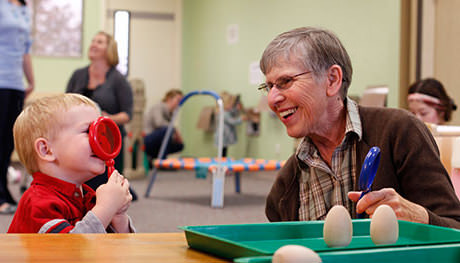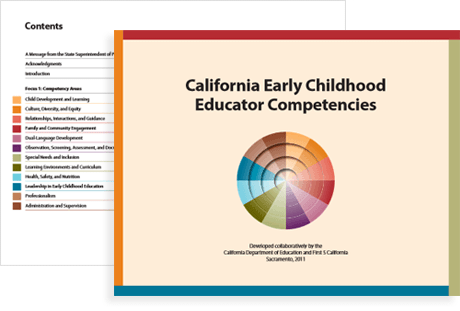Children see the world quite differently than we do. The world is new to them. They are experiencing so many "firsts" and trying to make sense of them. When we seek out their points of view, we gain valuable insights into their thinking, their questions, their fears, and the things that tickle their fancy and delight them. Take time to listen and watch closely. Let their perspectives inform everything you do in your day-to-day practice.

Culture and language are closely linked. In young children's minds, culture and language are synonymous with family. Children may not have the words, but they recognize where power and privilege live. Imagine a child entering an early childhood program where no one speaks his or her language, or looks or does things like their family does them. Imagine the sense of confusion, the isolation, and the fear that might exist in the child.
How might you help him feel like a member of the program's community, yet connected to, and proud of, his culture?
At home, Keej lives with his siblings, parents, and grandparents, all of whom speak Hmong. When he was four years old, Keej's family moved to a European-American suburb. His parents enrolled him in an ECE program with all English speakers. Keej's father was eager for him to learn English, so that he would be successful in school, and be able to translate for family members in other English-speaking settings, such as the doctor's office.
Before the end of the school year, Keej was fully fluent in English and no longer wanted to speak Hmong at home. He began to feel a bit embarrassed by how different his family was from all of his new friends.
Reflect on Keej's story. Use the template below to record your observations, your responses, and your reflections. Share them with a colleague to start a dialogue.
Use this template to record your observations, thoughts, and feelings. Download the Template
Deepen your understanding of the Topic: Linguistic and cultural diversity in Performance Area 4 of the CA ECE Competencies. Scroll to page 50.
Can you find other places in this competency area that address your interests and needs?

Return to this article about "Social Justice in Early Childhood Classrooms" to consider changes you might want to make in how you approach your work.